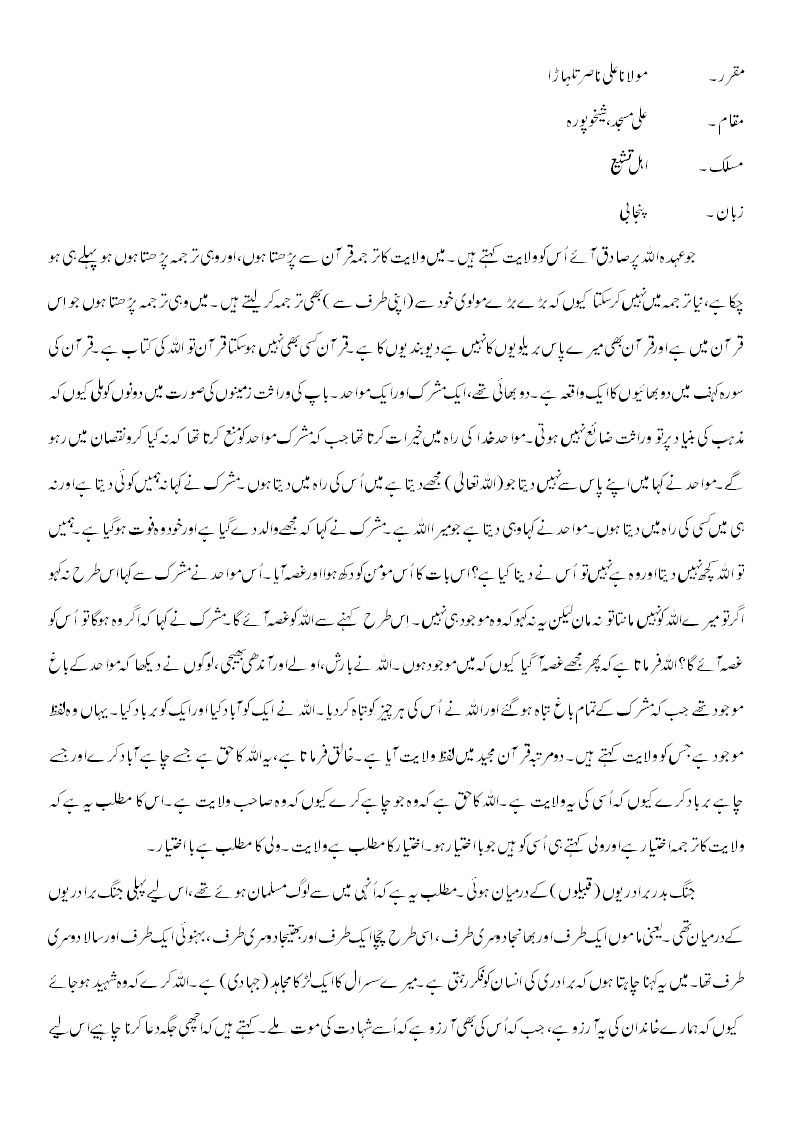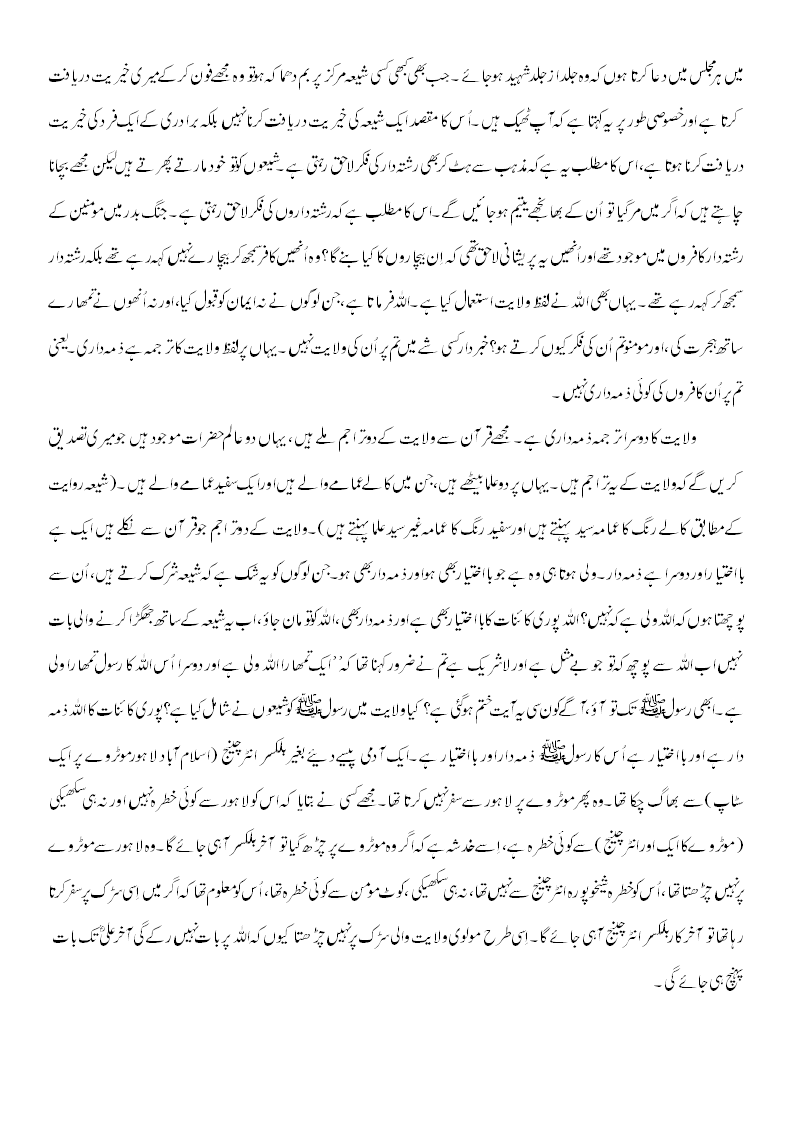Speaker Maulana Ali Nasir Tilhara
Location: Ali Masjid, Sheikhupura
Sect: Shia
Language: Punjabi
Time: April 2010
[tab:Listen ]
Listen to Maulana Ali Nasir Tilhara by clicking at the Play button below
(To download, press right mouse click here and select ‘Save Target As’)
[tab:Read Urdu ]
[tab:Read English ]
Wilayat (supremacy) is that which is true of Allah. I have the Quran to prove this and it is not a Barelvi Quran but a Deobandi Quran although the clerics will translate whatever way they like.
There were two men, one believer and the other denier (mushrik). One said I give in the way of Allah because what I have is given to me by Him. The other said I got my wealth from my father who died and left it to me. How can Allah give if he is not present? The faithful said you make Allah angry. Came the reply what use is this anger from someone who is not present?
Then came a terrible storm which laid waste the orchards of the non-believer while sparing those of the faithful. Allah made one prosper while destroying the other. Here comes the word Wilayat, the right and ability to do something according to one’s will. The Quran mentions the word twice in the sense of Allah’s will to save and destroy whomever He desires.
Hence the translation of Wilayat is supremacy, the ability to do whatever one wants. From Wilayat comes the word Wali which points to the autonomy of whoever is Wali.
The Battle of Badr was intra-tribal because the Muslims were converted from the same tribe and had to fight their brother tribesmen. It was war of biradari (relatives).
A non-Shia boy from the side of my in-laws has become mujahid (warrior) and I pray that he achieves martyrdom. Our family also thinks that he should achieve it.
Wherever I lecture I pray among audiences that he becomes a martyr as soon as possible. He rings me every time there is an explosion at a Shia centre and asks after me. His intent is not to ask after the entire Shia community but after a relative. This means that apart from the care of religion there is the dimension of relationship.
Mujahideen go around killing the Shias, but this one wants to save my life because he doesn’t want his nephews (sister’s children) to become orphans. This means that relatives too are a source of concern apart from religion.
In the Battle of Badr the relatives of the believers were among the non-believers (kafir). The believers were worried about them but were silent because of religion. On this occasion the Quran uses the word Wilayat again saying, O Believers why are you perturbed, they are not the believers and have no Wilayat (right) over anything. Here the meaning of Wilayat is responsibility, that you have no responsibility for (saving) them.
These are the two meanings of Wilayat and the learned ones wearing black headgear (Syed) and white headgear (non-Syed) will bear me out. One meaning is supremacy and the other is responsibility. Wali is he who is supreme and responsible.
Why fight against the Quran? Allah is Wali (supreme). Why quarrel with the Shias? The word of Allah is that Allah is Wali and after him the Prophet PBUH is Wali.
The cleric will not travel the road that leads him to the Wilayat of the Prophet PBUH because if he travels on that road he will reach the Wilayat of Ali. And that he doesn’t want to accept.
[tab:END]


1:38 pm on May 20th, 2013
i have no accep moulan sb speeach,molana sb kadie tan sach bol diya karo sharam karo moulan sb ali khuda nahe wali hian